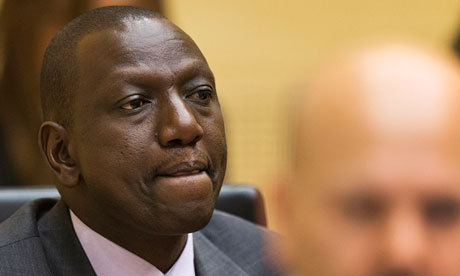By Brian Lanciault
Impunity Watch Reporter, Asia
NEW DELHI, India– An Indian judge will announce Friday whether four men should hang after fatally raping a young woman on a bus last December. The case presents a major test for India’s paradoxical death penalty.

Indian judges hand down an average of 130 death sentences per year; they have executed only three people in 17 years. Despite this seeming reluctance to carry out the sentences,India voted last year against a U.N. draft resolution which called for a global moratorium on executions.
In November, India ended what many human rights groups had perceived as a de facto moratorium on capital punishment after executing Mohammad Ajmal Kasab, a militant convicted for the 2008 attack on Mumbai. Three months later, however, India hanged Mohammad Afzal Guru for a 2001 militant attack on parliament.
“In the past year, India has made a full-scale retreat from its previous principled rejection of the death penalty,” said Meenakshi Ganguly, South Asia director of Human Rights Watch.
She called for the complete abolition of the death penalty.
Prosecutors want the “harshest punishment” to be given to bus cleaner Akshay Kumar Singh, gym instructor Vinay Sharma, fruit-seller Pawan Gupta, and unemployed Mukesh Singh for the rape and murder of the woman. The hope is to send a signal to society that such attacks would not be tolerated.
Comments on social media suggest that popular opinion favors executing the men, yet a survey by CNN-IBN-The Hindu newspaper in July showed Indians were divided on capital punishment.
The four men were found guilty this week of luring the 23-year-old trainee physiotherapist onto a bus on December 16, raping and torturing her with a metal bar and then throwing her naked and bleeding into the street. She died two weeks later. Defense counsel A.P. Singh urged Judge Yogesh Khanna to ignore demands for the death penalty, which characterized as “primitive and cold-blooded.
If the men are sentenced to death, a potentially multi-year appeals process lies ahead. The case will go the High Court and then the Supreme Court. If the courts confirm the sentences, the final decision will lie with the president, who has the power to grant clemency.
The death penalty should be imposed only in the “rarest of rare” cases, according to a Supreme Court ruling from the early 1980s. However opponents say the reality is quite different.
Indian courts sentenced 1,455 prisoners to death between 2001 and 2011, according to the National Crime Records Bureau. During the same period, sentences for 4,321 prisoners were commuted to life imprisonment.
There are 477 people on death row. Many have been there for years. Human rights groups are alarmed by the policy tendencies of President Pranab Mukherjee, who was sworn into office in July 2012. He has rejected 11 appeals for clemency, confirming the death penalty for 17 people.
Top politicians, including interior minister Sushilkumar Shinde, have said the death penalty is guaranteed in the case. Such comments could add pressure on the court to make a populist ruling to satisfy the public’s outrage.
For more information, please see:
Los Angeles Times — Indian police praised for handling of bus rape; other cases languish — 12 September 2013
Wall Street Journal — Rape Case: Sentencing Arguments — 11 September 2013
BBC — India Delhi gang rape four ‘deserve death penalty’ — 11 September 2013
Reuters — Delhi gang rape trial puts focus on death penalty paradox — 13 September 2013



